Vanessa Wright
Vanessa Page Wright is a former Talent Agent turned Filmmaker with a lifelong vision to create documentaries that preserve Black legacies via multifaceted historical storytelling. Through an empathetic, candid lens, she also aims to critically analyze race, culture, and identity within the Black community. Currently, she serves as the Founding Director of Tellers Untold and an Adjunct Professor at Columbia College Chicago.
Vanessa’s most recent creative venture is the award-winning documentary SANKOFA CHICAGO, which was sponsored by the Illinois Arts Council. Since its debut, this film has already received numerous awards, including “Best Educational Film” from Cannes World Film Festival (June 2021), the “Outstanding Achievement Award” from the Black Swan International Film Festival, and “Best Educational Film” from Druk International Film Festival (October 2021). This quickly earned success inspired her to turn SANKOFA CHICAGO into a full-blown docuseries. The 2023 sequel, ";SANKOFA CHICAGO: THE UNTOLD" has received acclaim and multiple film festival awards. It was sponsored by the Illinois Arts Council, The Chicago Cultural Affairs, and Columbia College.
She is also the behind-the-scenes Creator, Director, Writer, and Cinematographer of a web series called Your Kid Professors that provides children with a fun and engaging way to learn more about Black history. Prior to that, Vanessa Page Wright was the Director of a documentary thesis project called Big Ten Athletes. Another multi-award-winning film that also aired on an ABC affiliate station, featured prominent former NFL and NBA athletes from The Ohio State University.
Your project has entered in our festival. What is your project about?
Sankofa Chicago: The Untold" is the second installment of a trilogy, exposing the flaws in American History curriculums, with a focus on Chicago Public Schools but a nationwide relevance. This documentary unveils the forgotten contributions of Black and Brown individuals to American history. It delves into ways to improve the current curriculum and integrate this vital history across various academic disciplines. The documentary celebrates precision and encourages a commitment to lifelong learning. It inspires viewers to question conventional narratives, fostering a more nuanced perspective on American history.
Vanessa’s most recent creative venture is the award-winning documentary SANKOFA CHICAGO, which was sponsored by the Illinois Arts Council. Since its debut, this film has already received numerous awards, including “Best Educational Film” from Cannes World Film Festival (June 2021), the “Outstanding Achievement Award” from the Black Swan International Film Festival, and “Best Educational Film” from Druk International Film Festival (October 2021). This quickly earned success inspired her to turn SANKOFA CHICAGO into a full-blown docuseries. The 2023 sequel, ";SANKOFA CHICAGO: THE UNTOLD" has received acclaim and multiple film festival awards. It was sponsored by the Illinois Arts Council, The Chicago Cultural Affairs, and Columbia College.
She is also the behind-the-scenes Creator, Director, Writer, and Cinematographer of a web series called Your Kid Professors that provides children with a fun and engaging way to learn more about Black history. Prior to that, Vanessa Page Wright was the Director of a documentary thesis project called Big Ten Athletes. Another multi-award-winning film that also aired on an ABC affiliate station, featured prominent former NFL and NBA athletes from The Ohio State University.
Your project has entered in our festival. What is your project about?
Sankofa Chicago: The Untold" is the second installment of a trilogy, exposing the flaws in American History curriculums, with a focus on Chicago Public Schools but a nationwide relevance. This documentary unveils the forgotten contributions of Black and Brown individuals to American history. It delves into ways to improve the current curriculum and integrate this vital history across various academic disciplines. The documentary celebrates precision and encourages a commitment to lifelong learning. It inspires viewers to question conventional narratives, fostering a more nuanced perspective on American history.
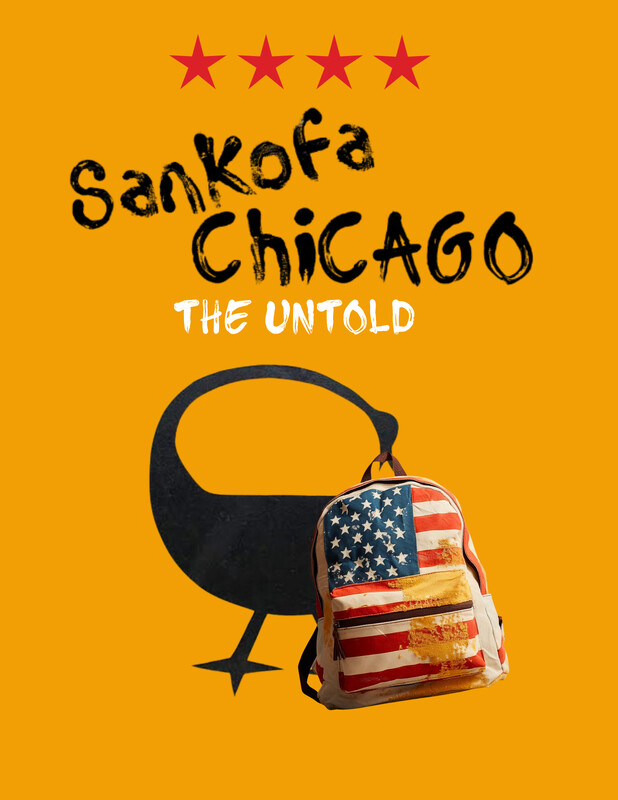
What are your ambitions with your project?
With my ambitions for this project, I aim to spark a meaningful dialogue about how American history is taught in K-12 schools across the United States. As a parent of two Black boys in Chicago Public Schools, I strongly needed to understand what they were learning about our history and ensure they received a comprehensive education. This documentary (and series) aims to reach as many people as possible, creating a buzz and fostering dialogue around the inadequacies in our current history curriculum. I aim to empower parents, educators, and caregivers with the knowledge and tools to advocate for change and promote a more accurate and inclusive understanding of American history in our educational system.
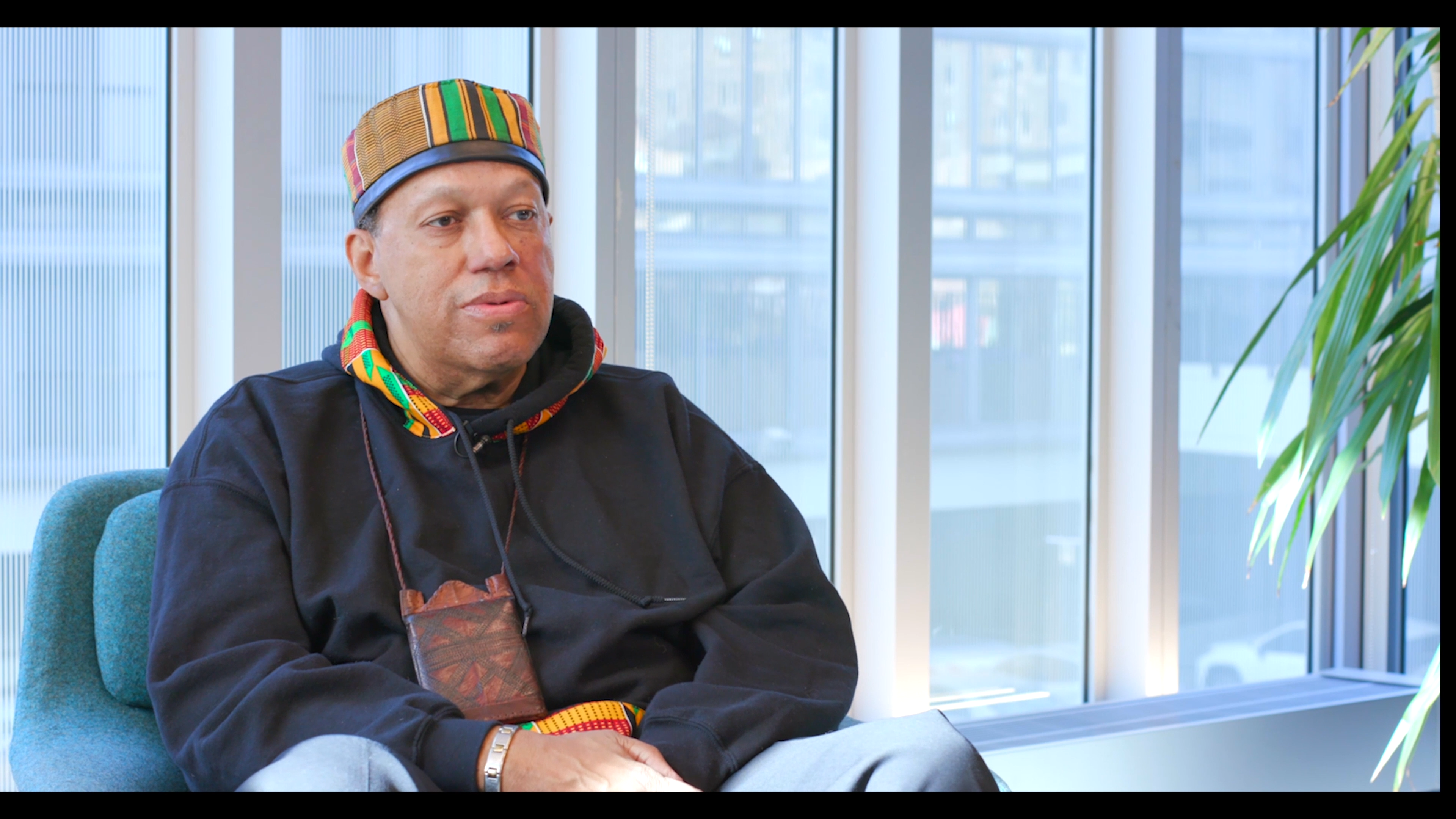
Tell us something about your shooting? What pleasantly surprised you?
Regarding our shooting, one of the most pleasant surprises was the experience of interviewing the kids. It was a genuinely enjoyable and heartwarming process. The children's responses were not only funny but also quite touching. What stood out the most was the natural and unfiltered way they expressed themselves. For example, when discussing the concept of 'race' in the context of discrimination and Black and Asian history in America, I asked them, "What does the word Race mean to you?" some of the younger children, aged around 6 to 8, responded with, "Well, it's when you have people start at a starting line on a track, and they run around to see who is the fastest." Their innocent and unexpected interpretations added a unique and charming dimension to our interviews, highlighting the power of children's perspectives in addressing complex issues.
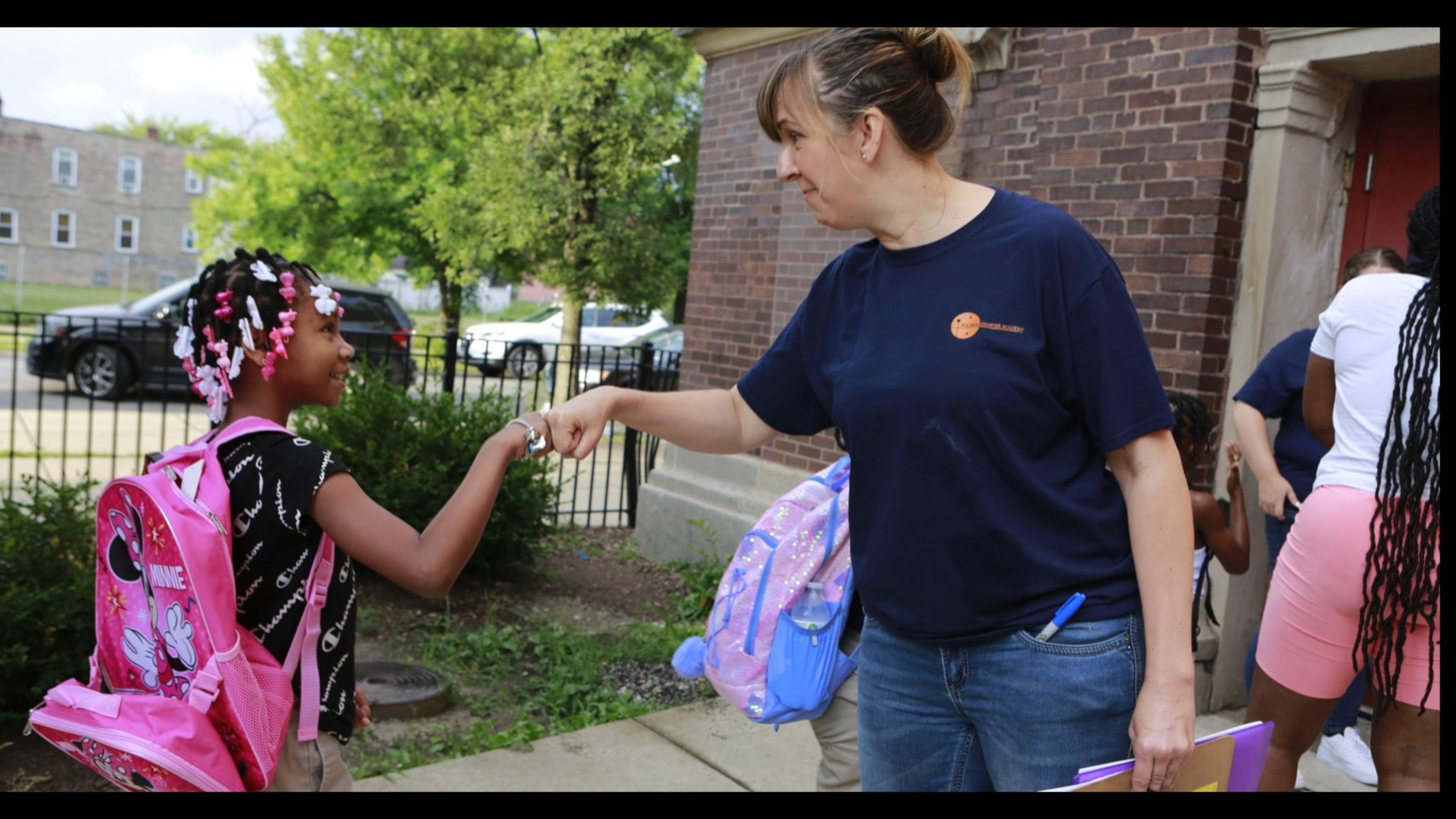
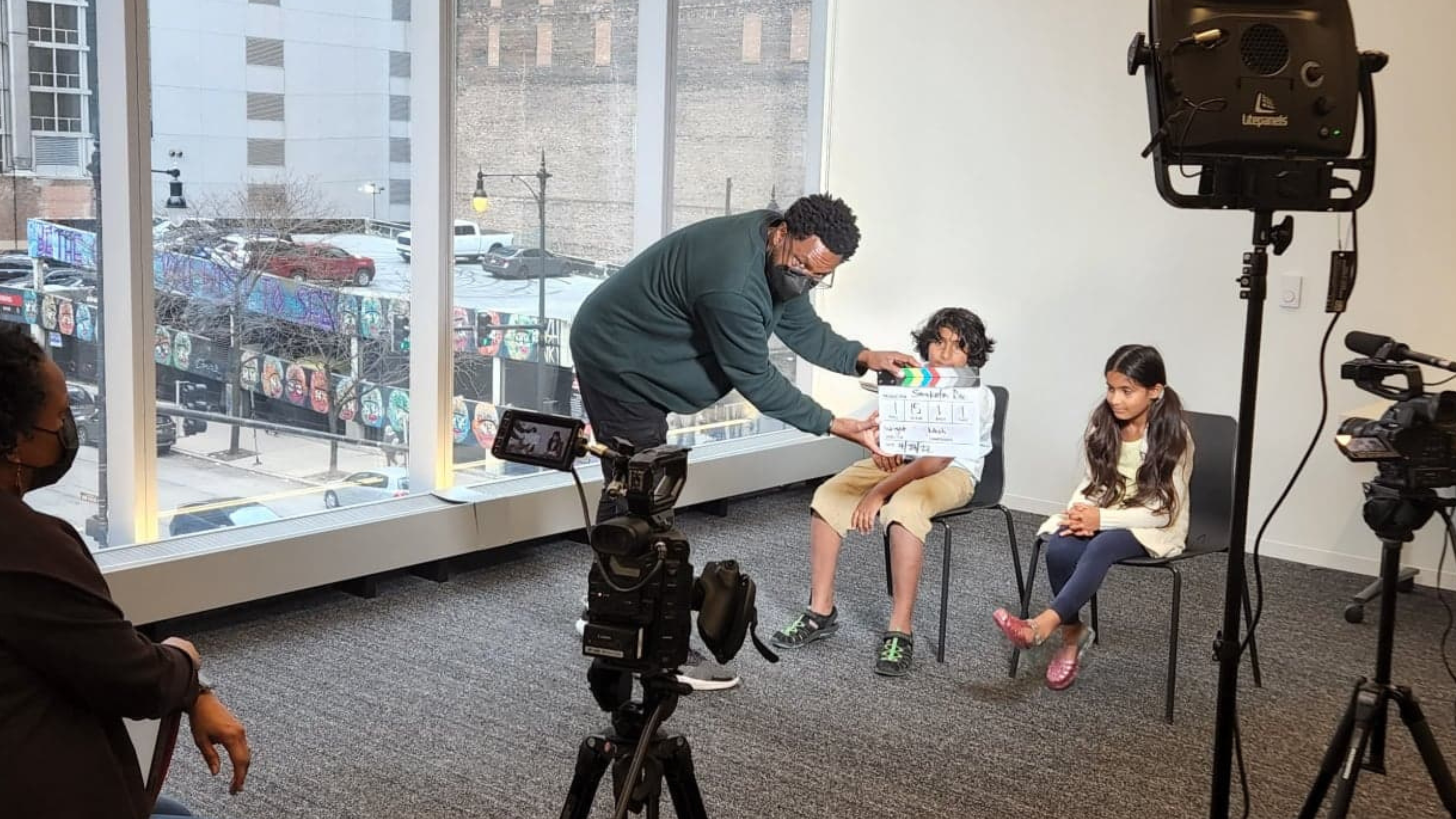
For what group of spectators is your film targeted?
The film is aimed at a wide-ranging audience, including educators, students, parents, guardians, history enthusiasts, and politicians, encompassing individuals from all ethnicities.
Why should distributors buy your film?
Distributors should consider acquiring 'Sankofa Chicago: The Untold' for its compelling narrative that delves into a nationwide issue in education. The film engages a diverse audience, resonating with educators, students, parents, history enthusiasts, and policymakers from all backgrounds. It doesn't just identify problems; it offers innovative solutions, making it a transformative force in American history education. This documentary is not just a film; it's a catalyst for redefining our approach to history education, sparking conversations, and driving meaningful change. It's a story that demands attention and has the potential to make a lasting impact on audiences nationwide.
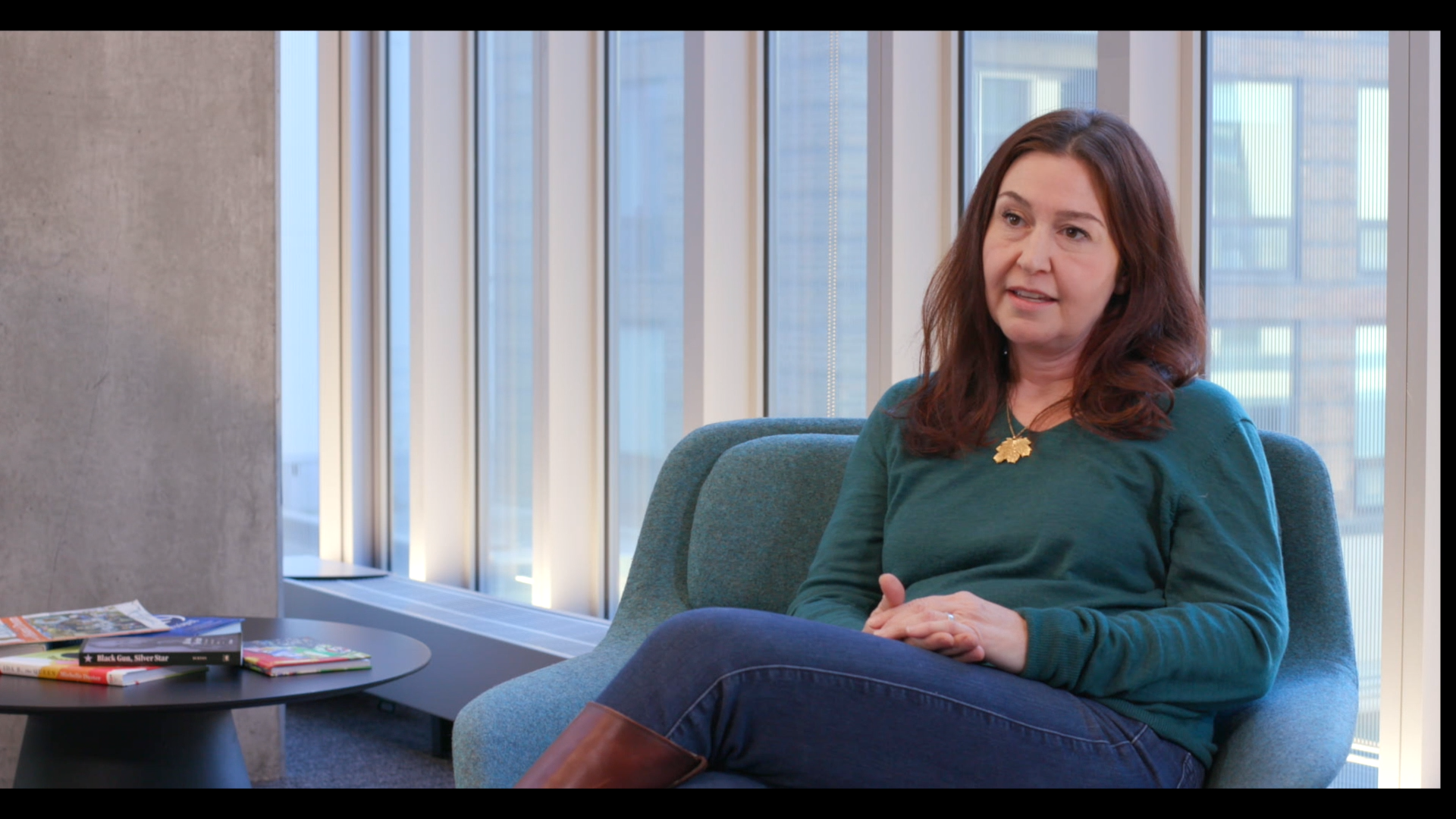
How would you specify your work? What characterizes your film?
Our work, 'Sankofa Chicago: The Untold,' is characterized by its focus on revealing overlooked aspects of American history education, particularly in Chicago Public Schools. Derived from "Sankofa," it symbolizes learning from the past. The film's essence lies in highlighting the contributions of Black and Brown individuals to our nation's history, sparking crucial conversations about education and engaging a diverse audience in reevaluating American history's representation.
Why did you decide to become a filmmaker?
My lifelong aspiration was to work in TV and film. This commitment was solidified during my undergraduate years at The Ohio State University, where I majored in Communication (TV/Film Production) and minored in Sociology. Following my undergraduate studies, I entered the TV industry. I later obtained a master's degree in media management while working in casting within the film industry. Although I initially considered pursuing a PhD., family circumstances redirected my focus towards independent research and documentary filmmaking.
Who is your role model?
My role models are my parents. They were pioneers, breaking barriers in history as Black individuals. Their lives have taught me the significance of education, faith, and perseverance. However, my film role models are Oprah Winfrey and Henry Louis Gates Jr. I admire their exceptional interviewing style and dedication to exploring the black experience.
Which movies are your favorites? Why?
I'm a fan of classic films that cover a range of genres, but these are the ones that stand out to me:
Sidney Poitier's "Guess Who's Coming to Dinner": This film is a favorite because it boldly addresses and challenges racial barriers and explores love and prejudice. Sidney Poitier's performance is powerful, and the film contributes to vital social dialogues.
Amélie stands out as one of the best in terms of cinematography. The use of color and movement in the film is truly remarkable.
Ghost Dog: The Way of the Samurai: I loved how this film combined crime, action, and philosophy elements, while Forest Whitaker's performance brought depth, emotion, and authenticity to the role.
Classics with Audrey Hepburn, like "Breakfast at Tiffany's,": I love classics like "Breakfast at Tiffany's" for their timeless storytelling and captivating characters. Audrey Hepburn's character in the film has a special quality that helps you escape real-world issues. The film's exploration of identity, aspiration, and romance provides a universal escape.
Alfred Hitchcock's "Rear Window": "Rear Window" is a masterpiece of suspense and voyeurism. I'm drawn to it for Hitchcock's exceptional ability to create tension and intrigue within a confined space, showcasing his mastery of cinematic storytelling.
Goldfinger: I deeply love James Bond films and can watch them repeatedly. However, my ultimate favorites are those in which Sean Connery assumes the role of the iconic 007. 'Goldfinger' undeniably elevated the standards with its adept incorporation of cutting-edge technology and ingenious gadgets, which was intriguing.
Where do you look for inspiration for your films?
I find inspiration for my documentaries in various places, particularly those focused on Black history, by drawing inspiration from my family, particularly my children. I think about how I can use the power of film to educate and inspire them about their heritage and history. Additionally, real-life issues that demand change, including policies, laws, and injustices, drive my documentary work. These pressing matters in society motivate me to create films that shed light on and contribute to addressing these important issues.
Which topics interest you the most?
I am most interested in Black history, ethnicity, race, social justice and education topics.
What do you consider your greatest achievement in your career?
My greatest career achievement was completing my first documentary and winning Best Educational Film at the Cannes World Film Festival. This recognition marked a significant turning point in my journey, boosting my confidence and validating my commitment to filmmaking, especially since my film career began after transitioning from my role as a talent agent.
What do you consider most important about filming?
In documentary filmmaking, authenticity and truth are paramount. Alongside this, good audio and precise editing are essential for weaving a compelling and cohesive storyline.
Which film technique of shooting do you consider the best?
From an artist's perspective, the best film shooting technique depends on the specific project and artistic goals. There is no one-size-fits-all approach, as the choice of technique should serve the storytelling and artistic vision, creating a powerful and immersive cinematic experience.
How would you rate/What is your opinion about current filmmaking?
The film industry is evolving with both opportunities and challenges. Filmmakers are pushing boundaries to foster innovation, while issues like franchise dominance, studio influence, and pandemic disruptions impact creativity. Technology's widespread accessibility through social media is a double-edged sword, encouraging creativity and intensifying competition and content saturation.
What can disappoint you in a movie?
For a documentary, the disappointment often stems from a failure to meet the audience's expectations of accuracy, depth, engagement, and balanced presentation of the subject matter.
Who supports you in your film career?
In my film career, I received substantial support from various sources.
My family, including my husband, mom, kids, in-laws, and cousins, provides essential support and encouragement. I'm fortunate to teach at Columbia College Chicago, receiving help for my filmmaking. Additionally, my friends, cast, crew, and sponsors like the Illinois Arts Council and Chicago DCASE play a vital role in bringing my films to life.
What are the reactions to your film? (opinion of spectators, film critics, friends and family)
The reactions to my film have been overwhelmingly positive. Spectators, film critics, friends, and family have shared their enthusiastic feedback. Many mentioned that they felt part of a movement after watching the film. Overall, the consensus is that most viewers emerged from the film feeling educated and inspired.
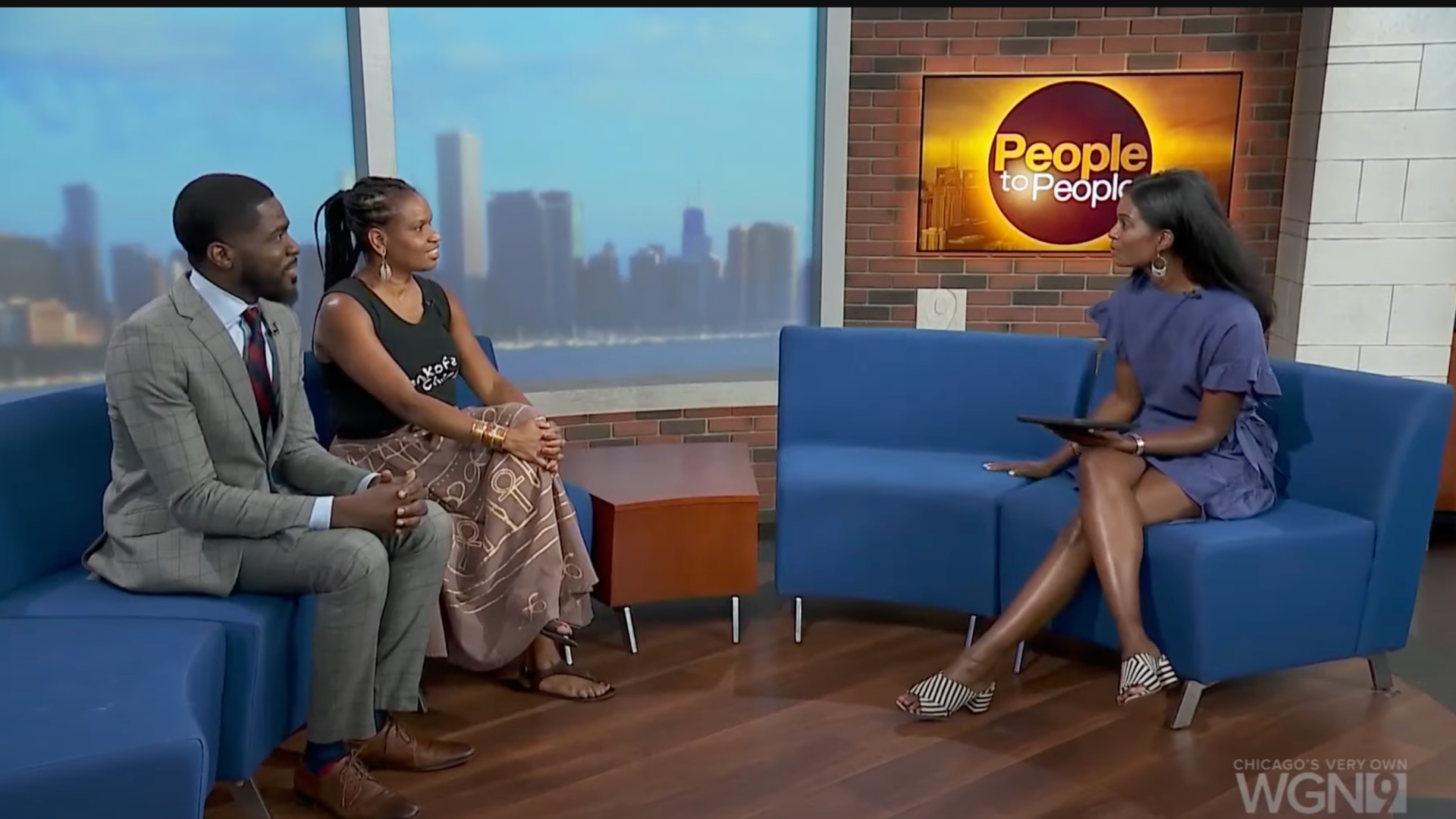
Have you already visited any of the prestigious film festivals?
Not yet!
What are your future plans for a filmmaking career?
Expanding on the feedback from my first two documentaries, I'm working on a children's short film inspired by the Sankofa Chicago docuseries. Simultaneously, I'm in pre-production for the third and final installment of the series, addressing the pressing issue of mental health in America. This documentary delves into the historical context, tracing back to the era of slavery and highlighting intergenerational trauma. It aligns with the overarching theme of the docuseries: uncovering hidden facets of African-American history to promote understanding, healing, and progress.
IMDB: https://www.imdb.com/title/tt27642312/?ref_=login
Website: www.sankofachicago.com
